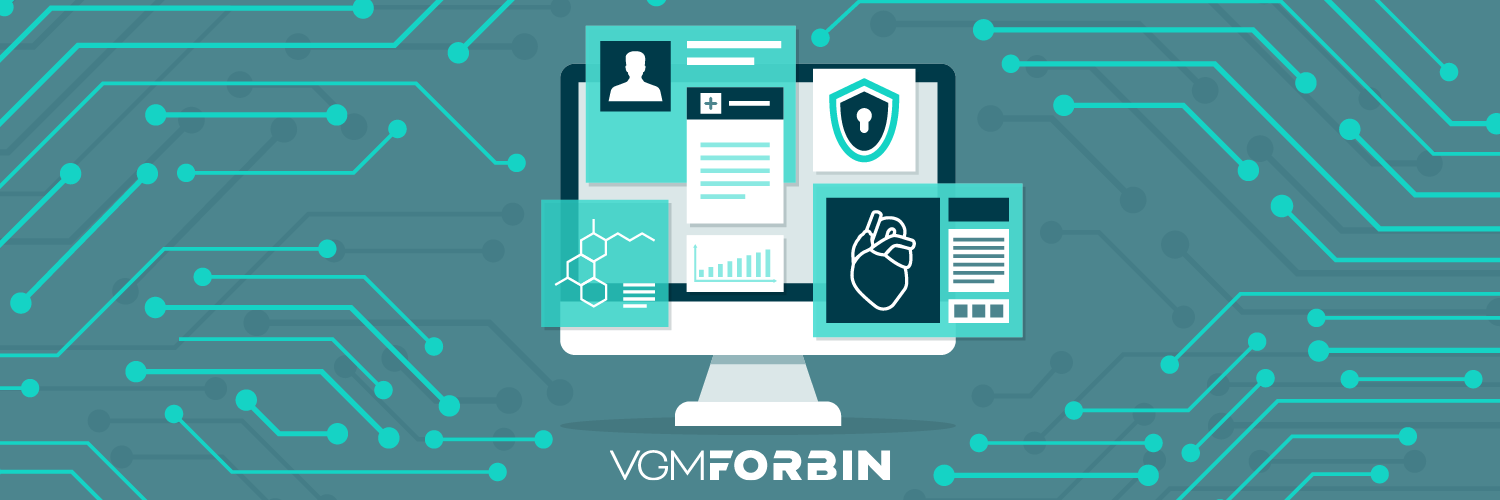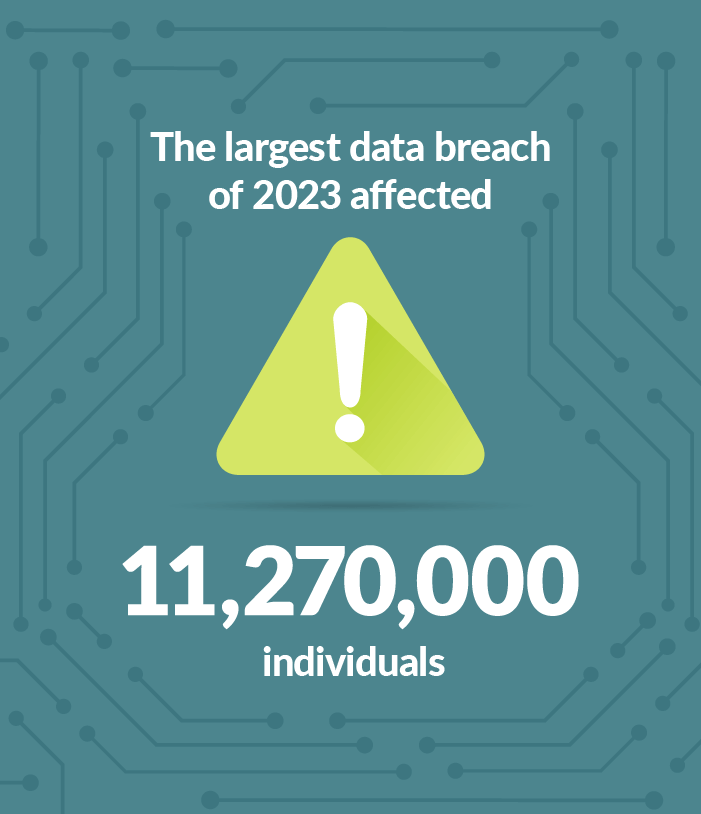
Updated Tue May 14, 2024
Published Under: Disaster Recovery Healthcare IT Services Managed IT

Picture this: it’s 2023 and data breaches are like uninvited guests at a digital party. They sneak in, pilfering an astonishing 133 million records that are then exposed, snatched and spilled out into the digital abyss. The actions of these pesky party guests result in malware infections, account takeovers, financial losses and more. So, what can be done? Let’s take a look at 2024 healthcare data breach trends and cybersecurity strategies to mitigate them.
The Alarming Surge in Healthcare Data Breaches
2023: A Record-Breaking Year
 In 2023, the healthcare industry faced an unprecedented onslaught of cyber threats. A staggering 725 data breaches were reported, affecting over 133 million records—a stark reminder of the vulnerabilities within our systems. These breaches not only compromise patient privacy but also disrupt critical healthcare operations.
In 2023, the healthcare industry faced an unprecedented onslaught of cyber threats. A staggering 725 data breaches were reported, affecting over 133 million records—a stark reminder of the vulnerabilities within our systems. These breaches not only compromise patient privacy but also disrupt critical healthcare operations.
Cyberattack Prevalence and Impact
- Healthcare Breaches: The total for 2023 includes 26 data breaches of more than 1 million records and four breaches of more than 8 million records.
- Hacking Incidents: In 2023, hacking incidents accounted for 79% of large breaches reported to the Office for Civil Rights (OCR), a leading cause of healthcare data breaches.
- Patient Records Breached: In the first half of 2023, more than 16 million medical records stored in the network were affected by healthcare data breaches.
- Data Breach Costs: The average cost of a data breach in the healthcare sector in 2023 was $10.93 million, which is an increase of 53.3% over the past three years.
- Average Downtime: Ransomware attacks caused an average downtime of 18.71 days in U.S. health organizations.
The Anatomy of Healthcare Cyber Threats
- Data Breaches: Healthcare organizations store large amounts of patients’ protected health information (PHI). Data theft is a common goal of attackers targeting these organizations.
- Ransomware Attacks: These malicious programs encrypt critical data, holding it hostage until a ransom is paid. Hospitals and clinics often fall victim, disrupting patient care and operations.
- Business Email Compromise (BEC): This type of attack involves impersonating a trusted individual or vendor to trick employees into transferring funds or revealing sensitive information.
- Voice Recordings and Deepfakes: Using voice recordings or deepfakes to impersonate healthcare professionals increases employee susceptibility.
- Phishing: Scammers send fraudulent emails or messages to trick individuals into revealing sensitive information or clicking on malicious links.
- Malware: This type of attack involves installing malicious software on your organization’s systems to steal data or disrupt operations.
- Emotet Resurgence: A type of malware that is known for its ability to evade detection and spread rapidly through networks. It experienced a resurgence in 2023.
Strategies for a Resilient Healthcare Cybersecurity Framework
- Comprehensive Risk Analysis: Healthcare entities must conduct enterprise-wide risk analyses. Understand where electronic protected health information (ePHI) resides—across software, connected devices, legacy systems, and networks. Prioritize risk management to prevent or mitigate breaches.
- Regular Vulnerability Scans: Frequent vulnerability scans are essential, especially for internet-facing devices. Identifying and addressing vulnerabilities promptly reduces the attack surface and strengthens defenses.
- Offline, Encrypted Backups: Maintain offline backups of critical data, encrypted and regularly tested. These backups serve as a lifeline during ransomware attacks.
- Educate Staff on Social Engineering: Train healthcare staff to recognize social engineering attacks. Phishing attacks often exploit human vulnerabilities. Vigilance and awareness are potent shields.
Strengthening Healthcare Cybersecurity
As we navigate 2024, let’s remain vigilant. Cybersecurity is not a one-time fix; it’s an ongoing commitment. By adopting proactive measures, we can protect patient data, elevate defenses, and empower healthcare providers.
As a managed IT services provider, we recognize the critical role cybersecurity plays in protecting sensitive information. Learn more about how we can help your organization stay protected in 2024.
Comments